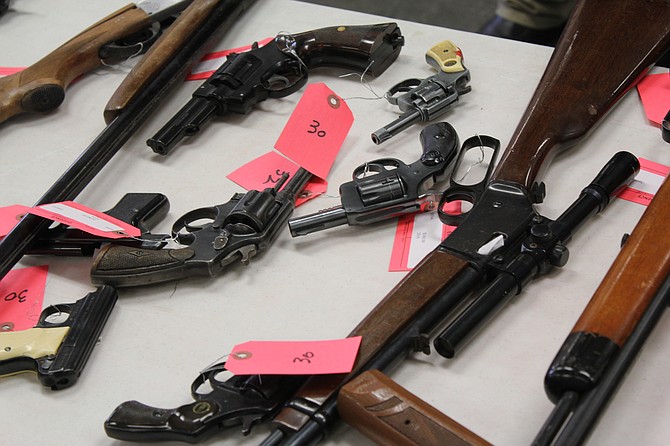Grant Aims To Combat Gun Violence on the South Side
Grant Aims To Combat Gun Violence on the South Side
BY WENDELL HUTSON
Contributing Writer
A new approach to combating gun violence by Mayor Lori Lightfoot is to enlist nonprofits to filter conflict resolution techniques to residents especially youth in urban neighborhoods like Roseland on the Far South Side.
“Gun violence is not only a public safety issue, it’s a public health crisis,” contends Lightfoot. “That’s why through this monumental down payment, we are putting tools directly into the hands of our community- based outreach workers, who every day utilize de-escalation skills to interrupt violence, prevent retaliation and build positive relationships with those who are at the highest risk of violence.”
A $6 million grant by the Chicago Department of Public Health (CDPH) will be disbursed to 11 organizations including the Uhlich Child Advocate Network (UCAN) and CeaseFire Roseland to provide crisis intervention and de-escalation services to further build on the city’s new approach to reducing violence.
Based in North Lawndale, UCAN has been providing these services since its inception more than a century ago, according to Adrienne Johnson, vice president of violence intervention and prevention services for UCAN.
“We have been working in Roseland now for almost three years and our counselors and case managers work with youth to help mediate conflicts,” said Johnson. Basically, UCAN walks with them through life, whether it’s helping them to get a GED (General Education Diploma), standing with them in court or assisting them in finding employment,” she said.
UCAN will also be among nine organizations to share a $1.5 million grant towards programming to expand the capacity of trauma-informed victim support services in the communities that are most impacted by violence, said Dr. Allison Arwardy, commissioner for the CDPH.
Arwardy said CDPH is encouraged that Chicago has used a data- driven approach to create a system that is responsive to preventing the escalation of violence in communities that suffer the greatest burden while at the same time, pairing in those communities, trauma-informed resources needed to promote recovery, resilience, and restoration.
She added that over the next few months, the nonprofit Metropolitan Family Services (MFS) would work with community-based organizations located in what she described, as the city’s 15 priority communities that experienced high levels of violence over the past three years, and that each organization would receive $150,000 to $400,000 each.
The grant will initially go to MFS, which has a Roseland site, and would then disburse individual grants to the organizations based on services provided, according to Vaughn Bryant, executive director of the Metropolitan Peace Initiatives program at Metropolitan Family Services.
“Based on the work they provide, each organization will receive monies from this grant,” said Bryant. He added most of their partner organizations have begun doing the work in their respective communities and by June 1, they expect to offer legal aid as well.
Moving forward, Bryant said the long-term goal for MFS is to help build strong relationships with people who we know are vulnerable to gun violence, mostly perpetrators.
“We want to help them turn their lives around. That’s why we will pay guys in the communities we are in $300 a week to get their GED,” said Bryant. “I tell guys to take advantage of this opportunity because with a GED, you can then learn a skill trade and that could lead to a $40,000 a year job.”
The other organizations and neighborhoods identified for the grant are Auburn Gresham and Englewood- Target Area Development; Austin-Institute for Nonviolence Chicago; Back of the Yards-Precious Blood Ministries; Chicago Lawn-Southwest Organizing Project; East Garfield Park-Breakthrough Ministries; Greater Grand Crossing- Acclivus; Humboldt Park-Alliance of Local Services; Little Village-New Life Ministries; South Shore Claretian Associates; and West Garfield Park-Institute for Nonviolence Chicago.
And Bryant said collaborating with these organizations on combating gun violence would ultimately lead to better communities.
“Our local partners engage and build trusting relationships with individuals and groups most vulnerable to gun violence and mobilize and provide them with a comprehensive set of services that lead to their healing and the healing of our communities,” said Bryant.
Latest Stories
- Giannoulias Awarding $13 Million in Grants to Chicago Area Libraries
- The Messi Experience Officially Launches in Chicago
- WNBA's Chicago Sky Announces First-of-Its-Kind Partnership with Moonshot to Protect Players from Online Threats and Abuse
- YWCA METROPOLITAN CHICAGO HONORS FOUR OUTSTANDING LEADERS AT 2025 COMMUNITY CHAMPION AWARDS
- Governor Pritzker Announces 36 Awards Through Tourism Grant Programs
Latest Podcast
STARR Community Services International, Inc.

